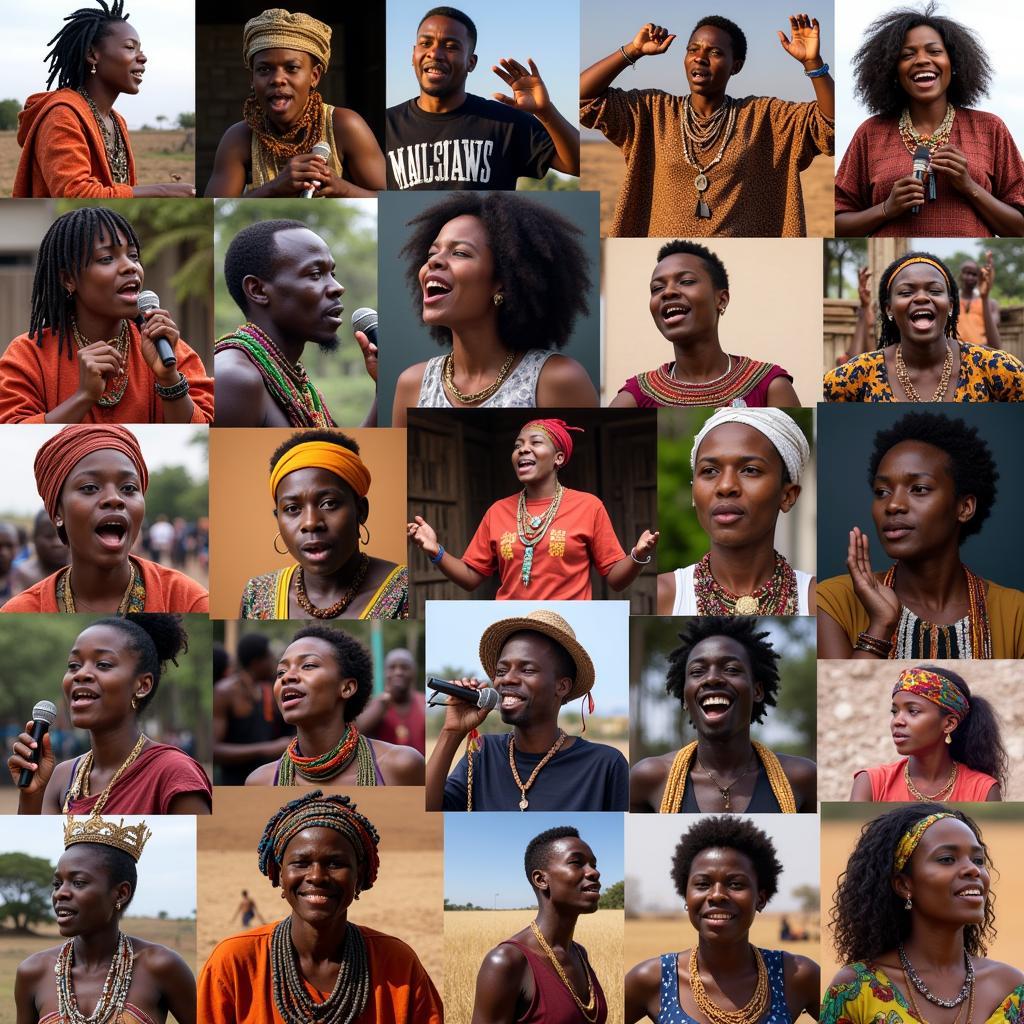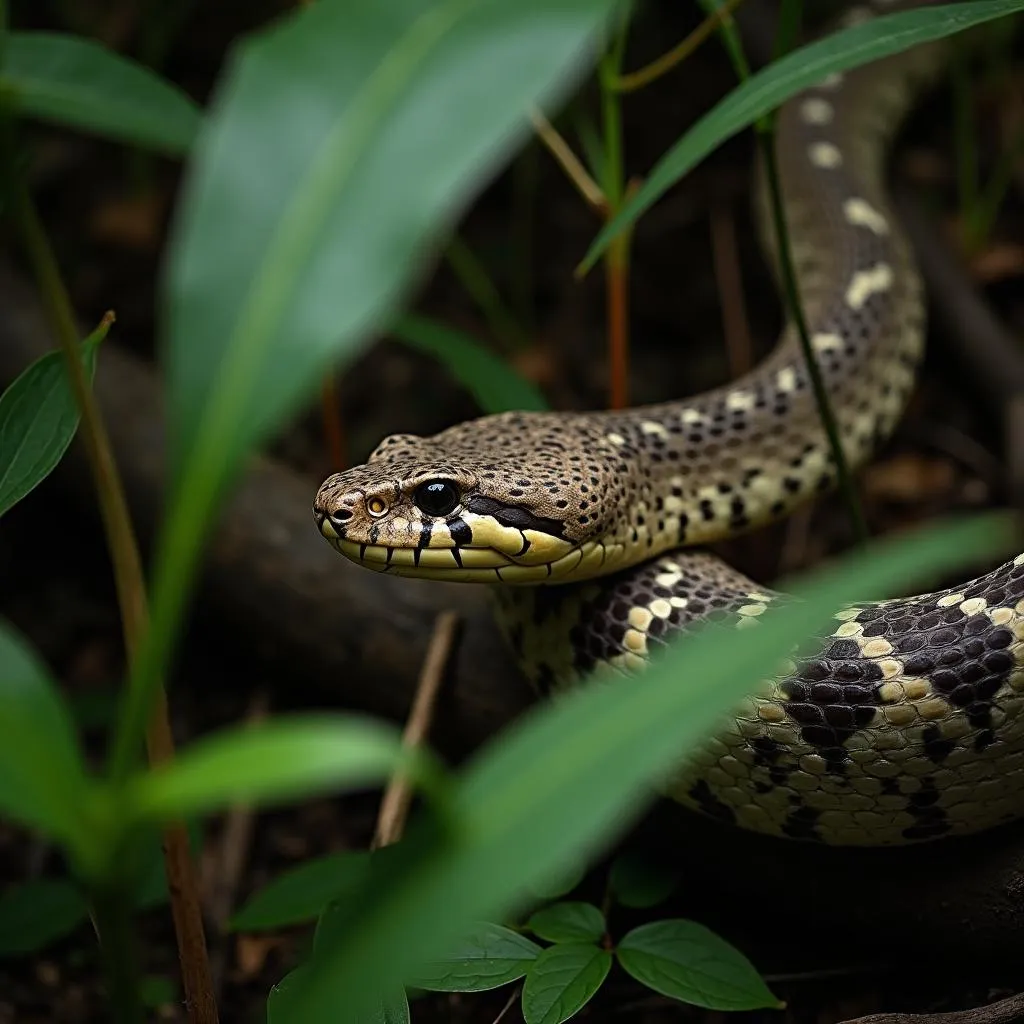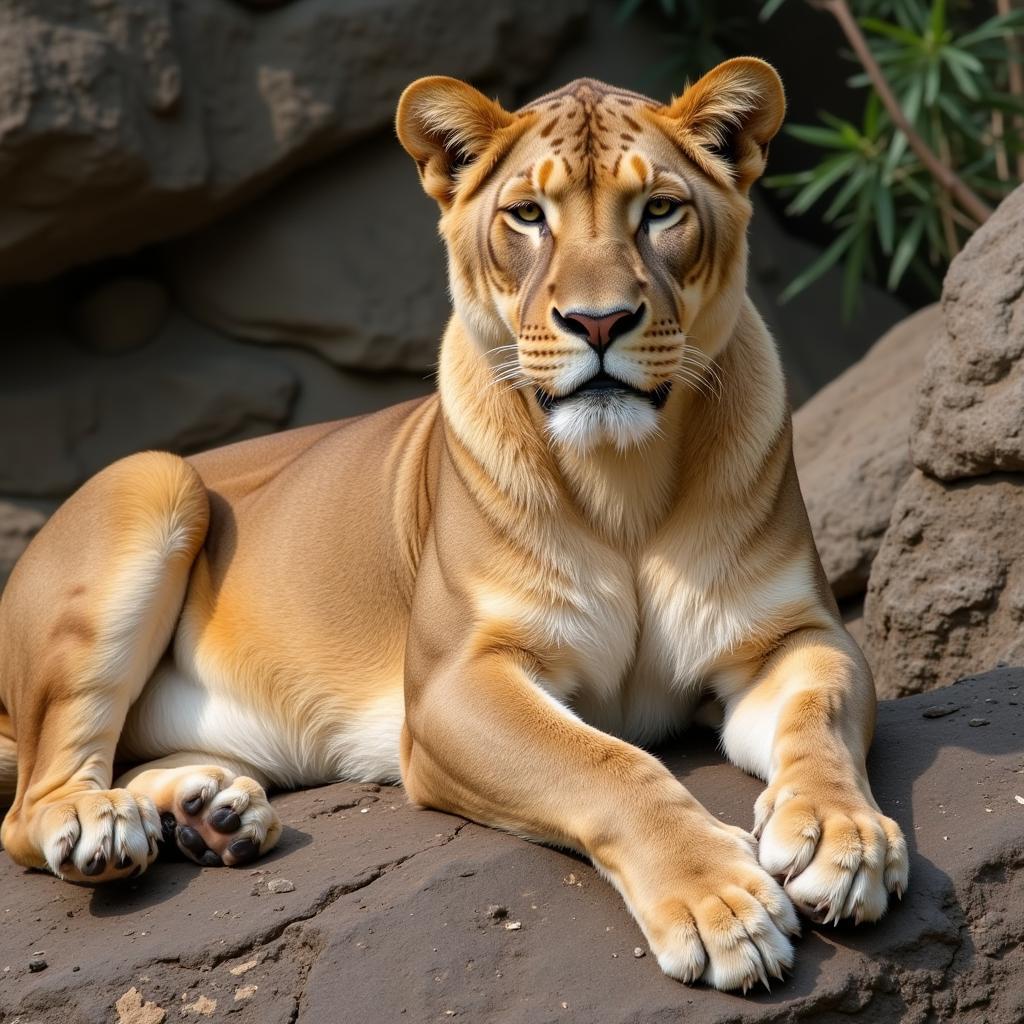The African Iguana: A Colorful Reptile of the African Mainland
The African Iguana, a fascinating reptile native to the African mainland, captivates with its vibrant colors and intriguing behaviors. These large lizards, often mistaken for their Central and South American counterparts, hold a unique place in the African ecosystem. From their diverse habitats to their important role in seed dispersal, the African iguana offers a glimpse into the rich biodiversity of the continent.
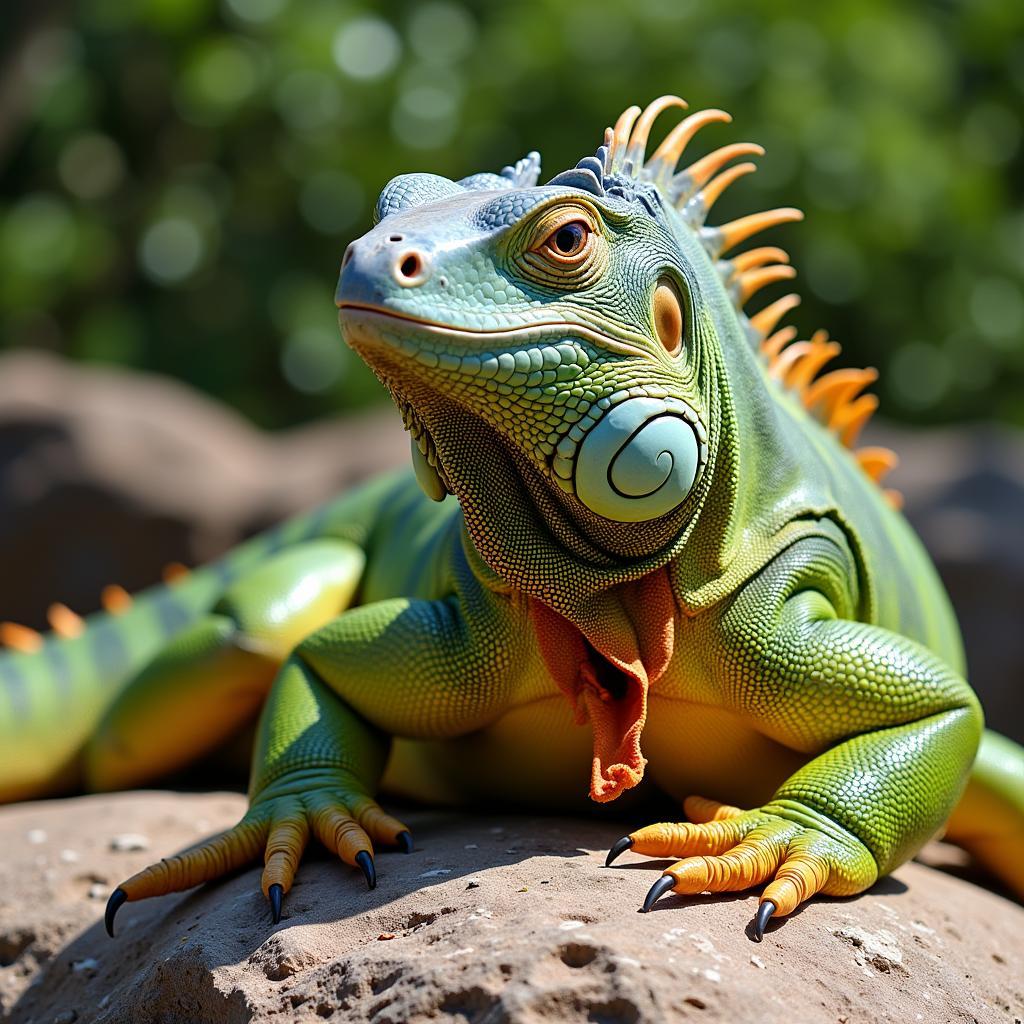 African iguana basking on a rock
African iguana basking on a rock
Unveiling the African Iguana: Appearance and Habitat
African iguanas are easily identified by their stout build, scaly skin, and a spiny crest that runs down their backs. Their coloration varies depending on the species and their geographic location, ranging from bright greens and blues to earthy browns and oranges.
These reptiles are primarily arboreal, preferring habitats with ample tree cover, such as forests, woodlands, and savannas. However, they are adaptable creatures and can be found in rocky outcrops and even urban areas where suitable vegetation exists.
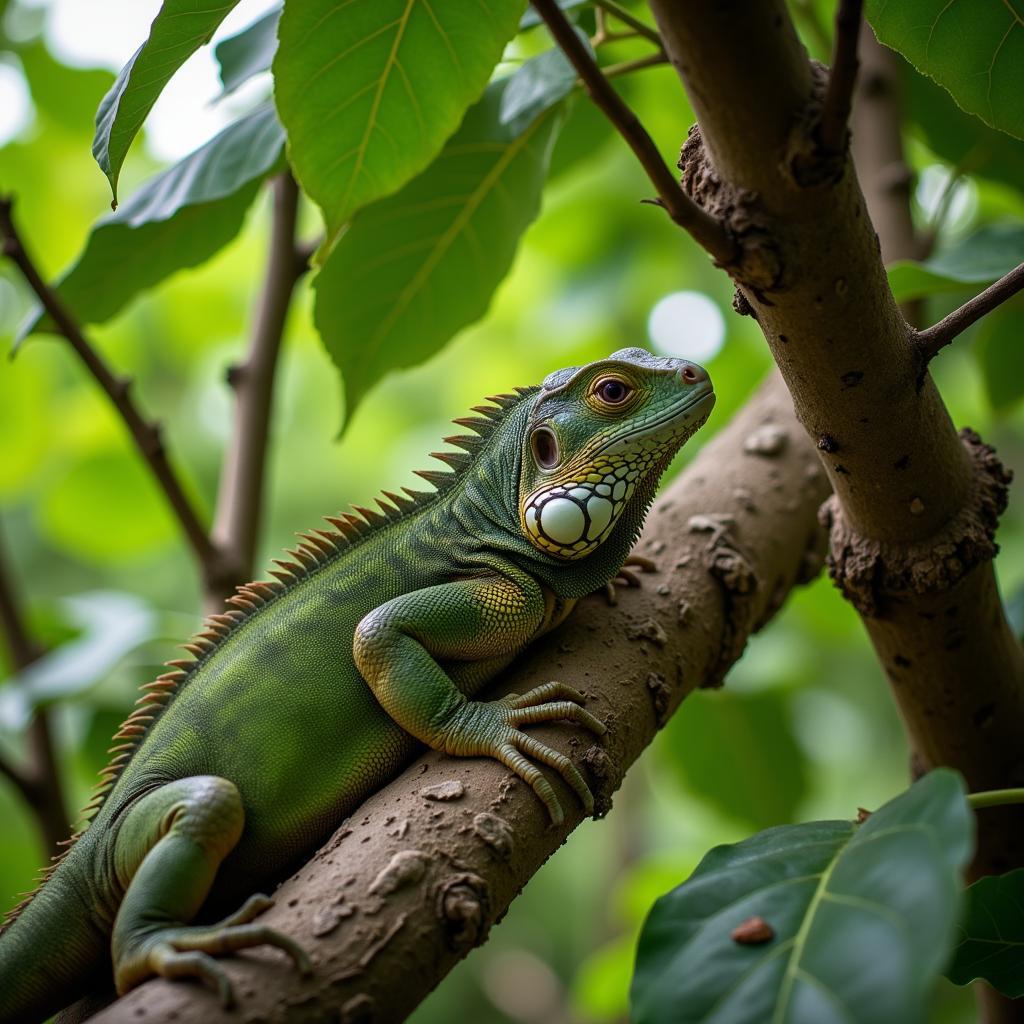 African iguana camouflaged in trees
African iguana camouflaged in trees
A Diverse Family: Exploring the Different Species
The term “African iguana” actually encompasses several different species within the genus Agama. These species, while sharing many common characteristics, exhibit subtle differences in their appearance, behavior, and geographic distribution.
Some of the most well-known species include:
- Rainbow Agama (Agama agama): Known for the striking coloration of the males, with their bright blue bodies and orange heads, particularly during mating season.
- Red-headed Rock Agama (Agama agama): Similar in appearance to the Rainbow Agama but with a more pronounced red coloration on the head and neck.
- Common Agama (Agama agama): A widespread species with a more subdued coloration, typically brown or olive green.
Life in the Wild: Diet, Behavior, and Predators
African iguanas are primarily herbivorous, their diet consisting mainly of leaves, fruits, and flowers. However, they are opportunistic feeders and will occasionally consume insects and small vertebrates.
These reptiles are diurnal, meaning they are active during the day. They are often seen basking in the sun to regulate their body temperature. Males are territorial and will defend their territories from rivals with displays of head bobbing and dewlap extension.
African iguanas face threats from various predators, including snakes, birds of prey, and larger mammals. Their camouflage and agility often provide a means of escape, while their sharp claws and powerful tails serve as defenses when threatened.
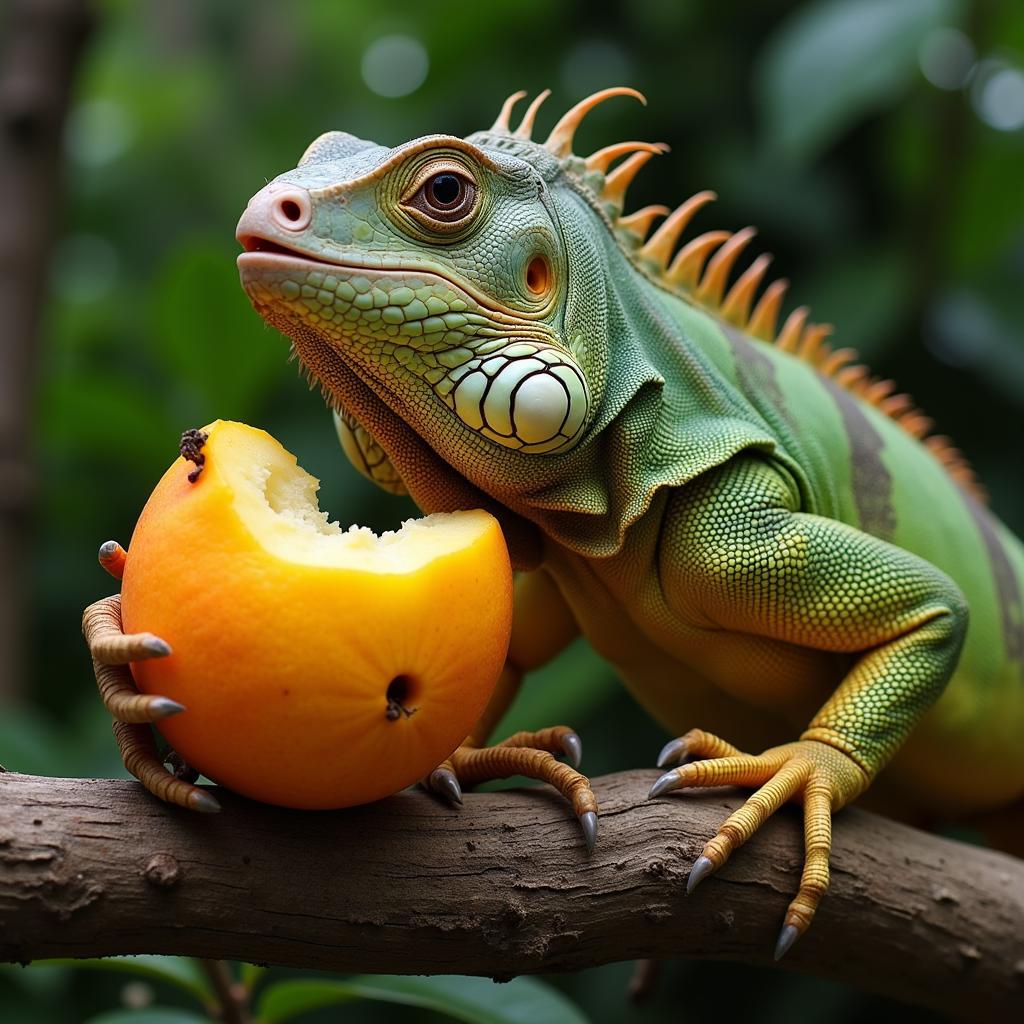 African iguana feeding on fruit
African iguana feeding on fruit
Conservation Status: Protecting the African Iguana
While most African iguana species are not currently considered endangered, habitat loss due to deforestation and human encroachment poses a significant threat. The illegal pet trade also impacts some populations.
Conservation efforts focus on habitat preservation, raising awareness about responsible pet ownership, and supporting research to better understand and protect these fascinating creatures. By appreciating the important role the African iguana plays in its ecosystem, we can contribute to ensuring its survival for generations to come.
FAQs: What You Should Know About African Iguanas
Are African iguanas dangerous to humans?
African iguanas are generally not aggressive towards humans and will only bite if they feel threatened. However, it’s important to observe them from a safe distance and avoid disturbing them in their natural habitat.
Can I keep an African iguana as a pet?
While African iguanas can be kept as pets, they require specialized care and a suitable environment to thrive. It’s crucial to research their needs thoroughly and obtain them from reputable breeders who prioritize ethical sourcing.
Discover More About African Wildlife
Interested in learning more about the amazing animals that call Africa home? Explore our comprehensive guide to african animals names az and delve into the diverse fauna of this incredible continent.
Need Help?
For any assistance or inquiries, please contact us at:
Phone: +255768904061
Email: [email protected]
Address: Mbarali DC Mawindi, Kangaga, Tanzania
Our dedicated customer support team is available 24/7 to assist you.

